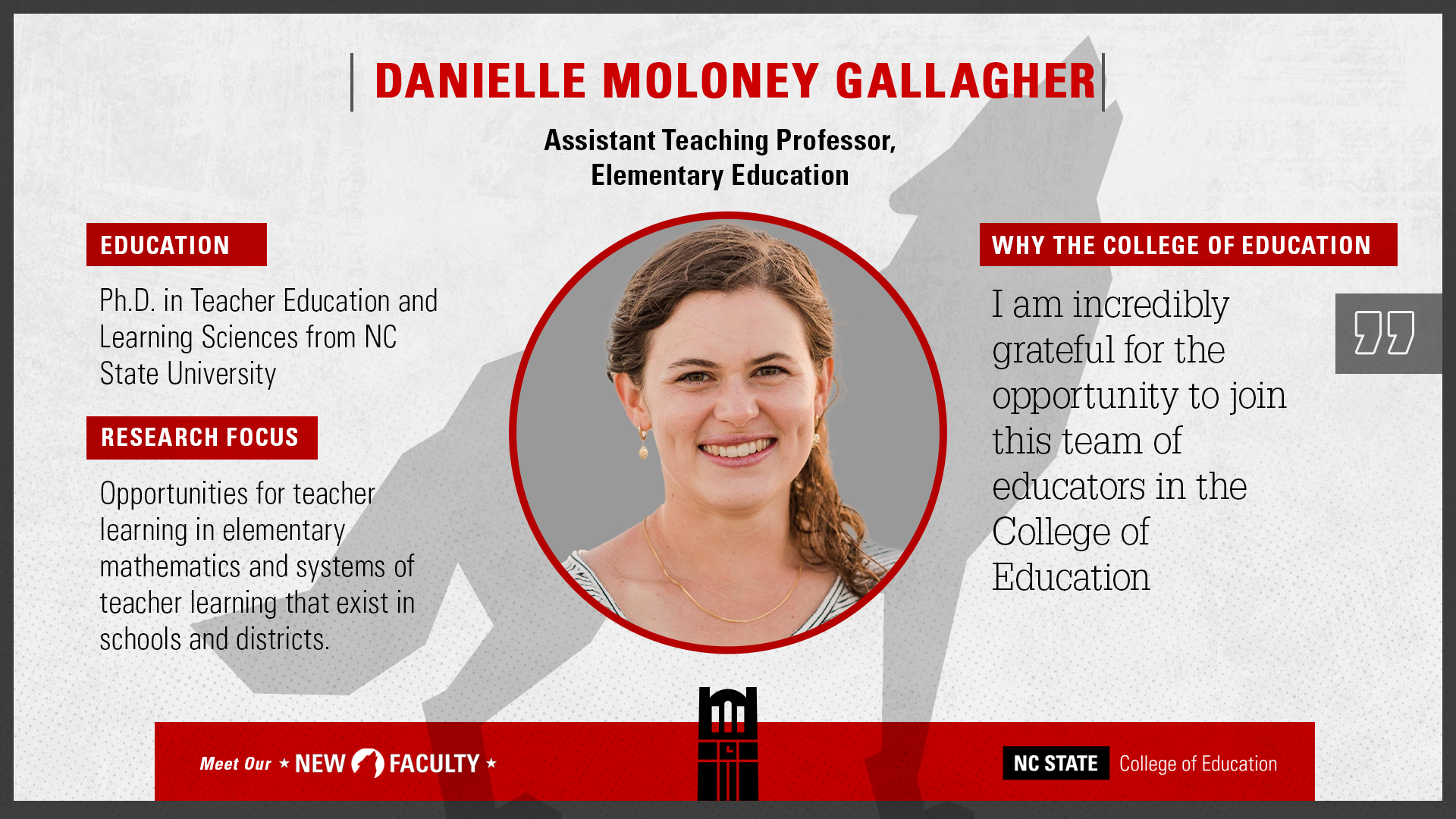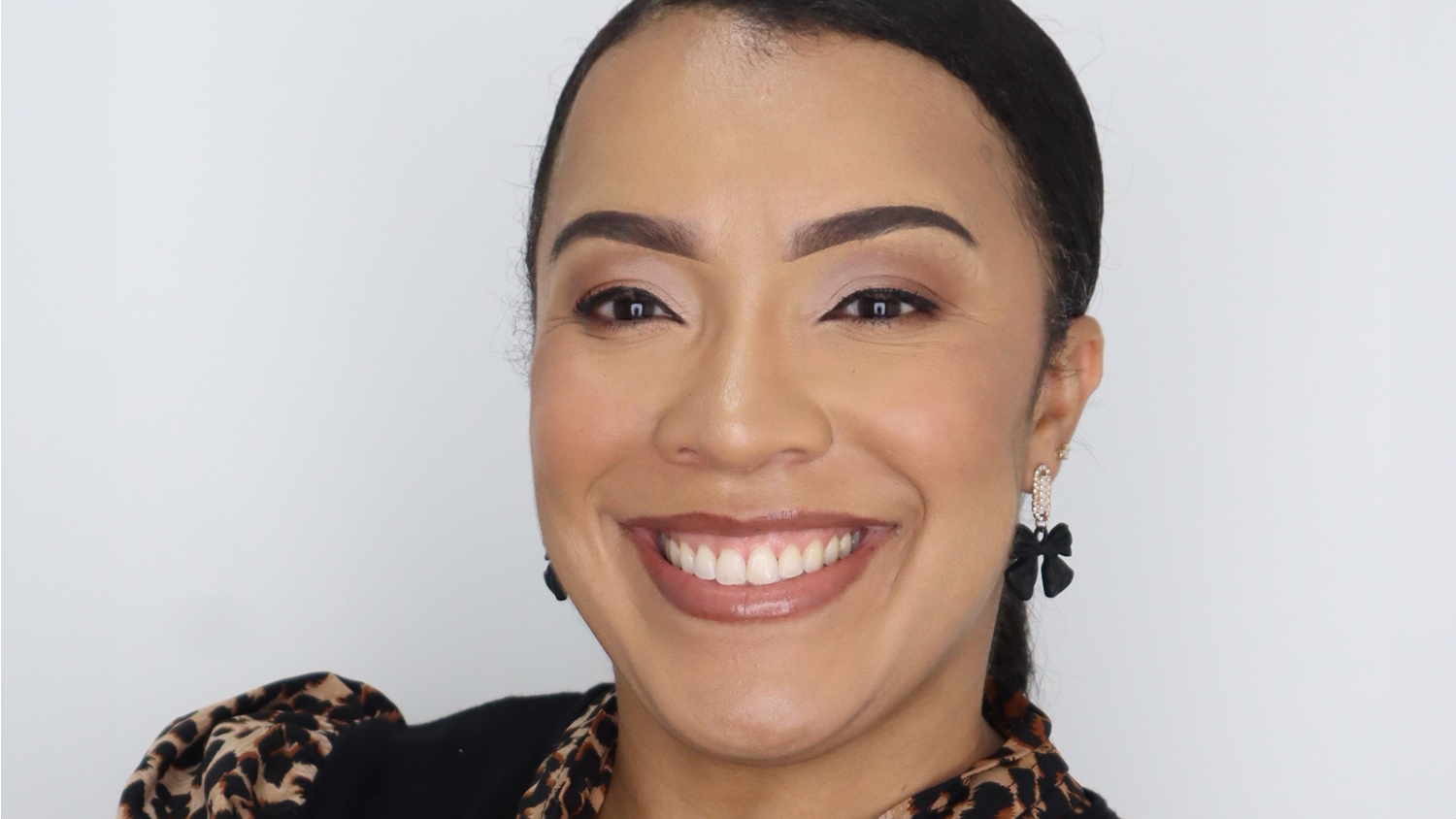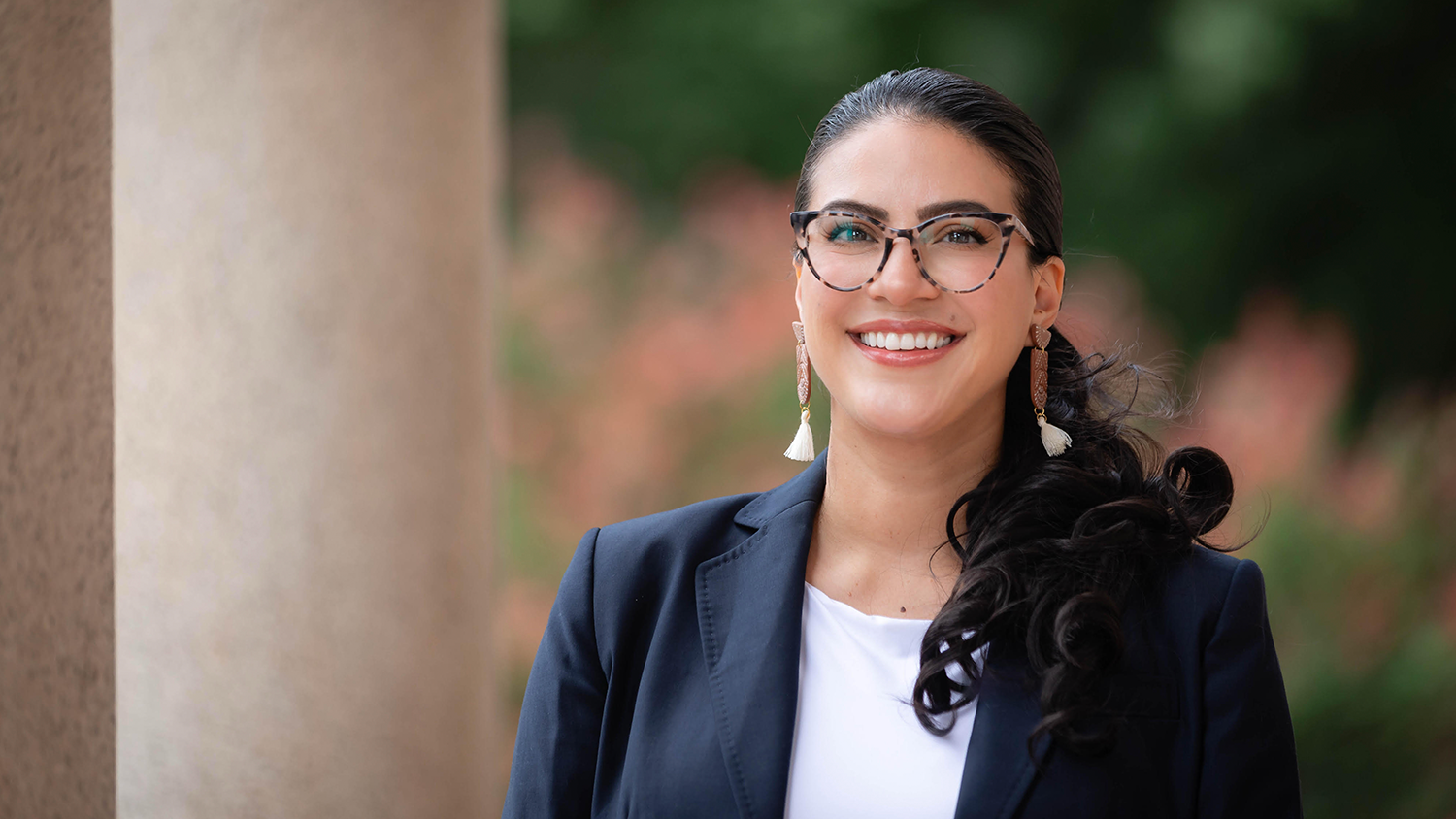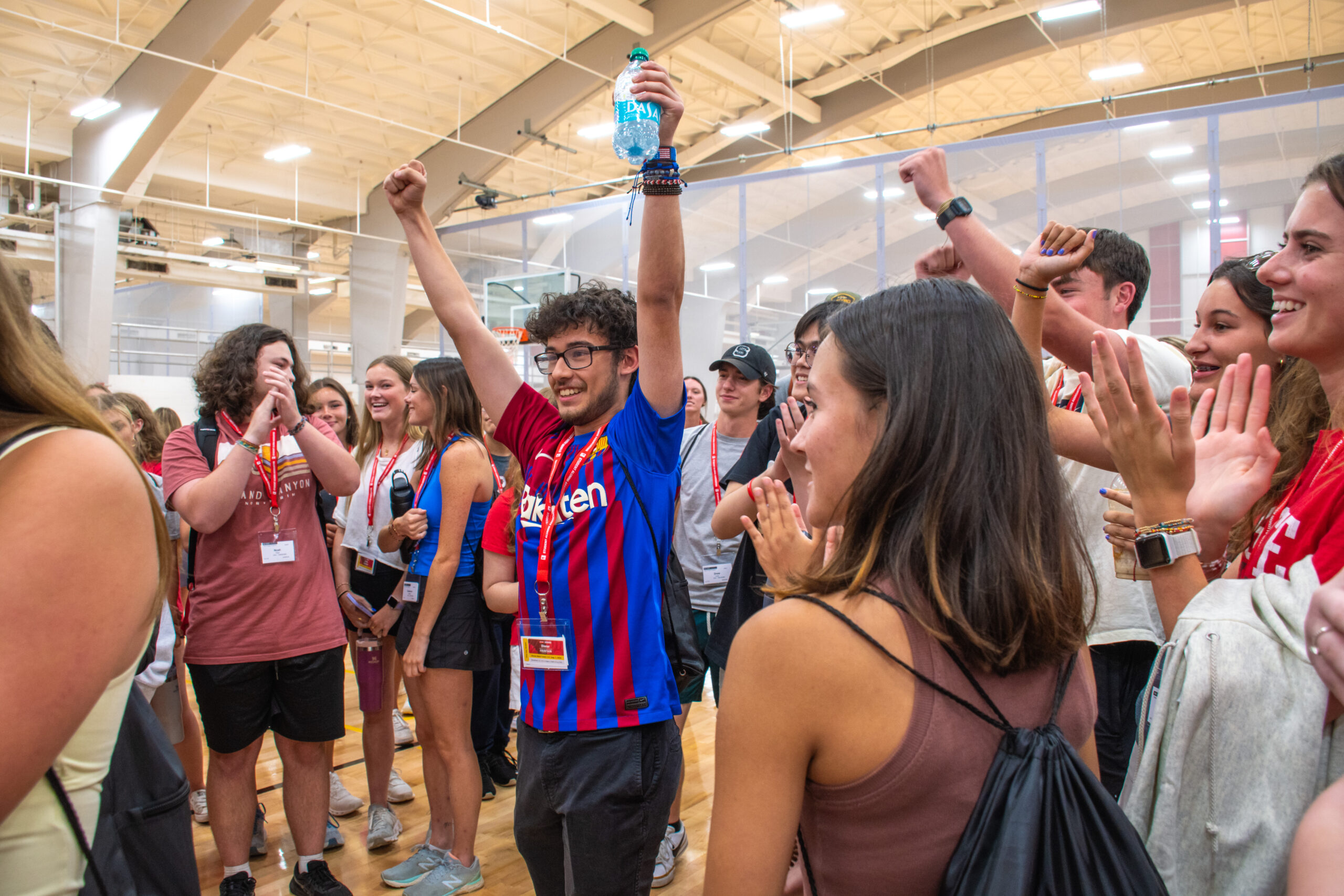Meet Danielle Moloney Gallagher ’20MED, ’24PHD: ‘I Hope My Students Will Learn to See the Value and Brilliance in Each Person They Work With’

Danielle Moloney Gallagher ’20MED, ’24PHD, a two time graduate of the NC State College of Education, will return to the college in the 2024-25 academic year as an assistant teaching professor of elementary education.
A former fifth grade mathematics and science teacher, Gallagher previously taught elementary mathematics methods courses for undergraduate pre-service teachers and coordinated the annual Math Summit, a professional development conference for K-12 math teachers in North Carolina.
Her areas of study focus on opportunities for teacher learning in elementary mathematics through interactions with data as well as systems of teacher learning that exist within schools and districts.
Learn more about Gallagher below:
The following Q&A has been edited for length and clarity.
Why did you choose a career in education?
I come from a family of educators, and I always had a hunch that I might end up in education. What really sealed the deal was my experience as an undergraduate. I was really fortunate to have mentors who expanded my understanding of teaching and learning, especially when it came to elementary mathematics, and they sparked my curiosity about how children learn and grow. I decided to pursue a career in education because I was fascinated by learning and because I wanted to support the growth and development of the next generation.
What inspired you to pursue a doctoral degree?
During my years as a classroom teacher, I always wanted to learn more and to become a better educator. I had heard great things about the elementary mathematics master’s program at NC State, and I decided to take some master’s-level courses. I was inspired by the faculty I met during this program, and they challenged me as a student and an educator. I decided to pursue a doctoral degree in order to continue learning and growing as an educator and researcher in a supportive and challenging community.
What sparked your interest in your area of study?
Most of my research interests come from my own experiences as an educator. Because I wanted to improve my own teaching practices, I became interested in ways that teachers can grow as educators, especially in support of students who have historically been marginalized in schools (e.g., students in special education, students of color, multilingual learners). As a teacher, I also recognized that my classroom was only one part of students’ experiences and only one part of the larger, complex educational system. This sparked my interest in researching teaching and learning from a complexity lens, attending to influences across multiple levels of a system.
What is one moment or project in your academic career that you are particularly proud of?
In the 2022-2023 school year, I taught ELM 310 and 410, the two elementary mathematics methods courses for the junior undergraduates. I had the privilege of teaching alongside three colleagues, and I am very proud of the work we did together. We each offered our unique perspectives, experiences and strengths to the team, and I learned so much from working with these women. We improved our instruction through this collaborative model of planning and implementing the courses together.
What is your teaching philosophy?
I believe that teaching should start by recognizing the humanity of those you are working with and by building relationships. This allows teachers to connect with their students and to build off what students already know and can do. I believe that teachers should act as guides and facilitators of learning experiences. I also believe that teachers are learners alongside their students.
What do you hope your students will learn from you?
I hope my students will learn to see the value and brilliance in each person they work with and that they will learn to be curious about their students. I also hope that my students will learn to constantly seek opportunities for growth by challenging themselves and reflecting along the way.
What do you believe makes an extraordinary educator?
I believe an extraordinary educator is someone who sees the value and potential of others, who inspires them to grow in multiple ways, and who offers support and mentorship throughout their journey.
- Categories:


